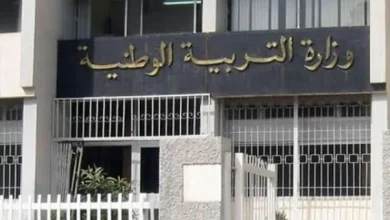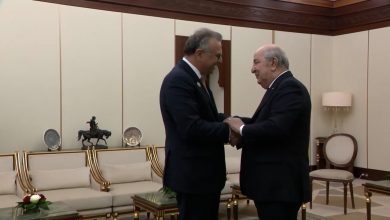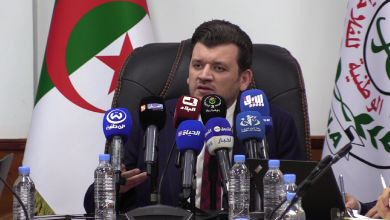Laayoune, Western Sahara – Tens of thousands of Sahrawi people have taken to the streets in a powerful display of solidarity, demanding a just and lasting resolution to the decades-long conflict and asserting their inalienable right to self-determination and independence. The mass demonstrations, which erupted in the occupied city of Laayoune and across various refugee camps, underscore the growing frustration and impatience with the stalled peace process and the continued Moroccan occupation of Western Sahara.
The protests, largely peaceful but resolute, saw demonstrators waving the flag of the Sahrawi Arab Democratic Republic (SADR) and chanting slogans calling for an end to the occupation and a free and fair referendum on independence, as stipulated by numerous United Nations resolutions. Activists and community leaders emphasized the urgent need for the international community to exert greater pressure on Morocco to comply with international law and allow the Sahrawi people to exercise their right to choose their own future.
The timing of the protests is significant, coinciding with renewed international scrutiny of the Western Sahara issue. Recent reports from human rights organizations have highlighted alleged human rights abuses perpetrated by Moroccan authorities in the occupied territories, including restrictions on freedom of expression, assembly, and movement. These reports have fueled calls for independent monitoring and investigations into the situation on the ground. Furthermore, several countries have expressed renewed interest in the conflict, seeking to revive the stalled UN-led peace process.
The Western Sahara conflict, a legacy of Spanish colonialism, has been a source of regional instability for decades. Morocco annexed the territory in 1975 after Spain withdrew, a move not recognized by the United Nations. The Polisario Front, the Sahrawi people’s liberation movement, launched an armed struggle for independence, which lasted until a UN-brokered ceasefire in 1991. The ceasefire agreement included a provision for a referendum on self-determination, but this referendum has never taken place due to disagreements over voter eligibility and other procedural issues.
Despite numerous attempts by the UN to mediate a solution, the conflict remains unresolved. Morocco proposes granting Western Sahara autonomy under Moroccan sovereignty, an offer rejected by the Polisario Front, which insists on the right to a full referendum on independence. The international community is divided on the issue, with some countries supporting Morocco’s autonomy plan and others maintaining their support for the Sahrawi people’s right to self-determination. Algeria, a neighboring country, has consistently supported the Polisario Front and the Sahrawi cause, providing refuge and humanitarian assistance to Sahrawi refugees for over four decades.
The situation in the refugee camps, located primarily in the Tindouf region of Algeria, is dire. The camps are home to tens of thousands of Sahrawi refugees who have been displaced for generations. Living conditions are harsh, with limited access to clean water, healthcare, and education. International aid agencies provide essential assistance, but the refugees remain dependent on external support. The lack of progress in resolving the conflict has created a sense of hopelessness and despair among the refugee population, particularly among the youth who have never known life outside the camps.
For more information about Algeria, check our dedicated section.
The recent protests serve as a stark reminder of the Sahrawi people’s unwavering determination to achieve self-determination and independence. They also highlight the urgent need for the international community to redouble its efforts to find a just and lasting solution to the conflict. Failure to do so risks further instability in the region and perpetuates the suffering of the Sahrawi people.
Analysts suggest that a renewed commitment from key international players, including the United States, the European Union, and the African Union, is essential to break the deadlock. This commitment should include increased diplomatic pressure on both Morocco and the Polisario Front to engage in meaningful negotiations, as well as increased humanitarian assistance to the Sahrawi refugees. Furthermore, independent monitoring of human rights in the occupied territories is crucial to ensure accountability and prevent further abuses.
The demonstrations in Laayoune and the refugee camps also underscore the importance of empowering Sahrawi civil society and ensuring their participation in any future negotiations. The Sahrawi people must be at the center of any solution to the conflict, and their voices must be heard. Any attempt to impose a solution without their consent is unlikely to succeed.
As the protests continue, the world is watching closely to see how the international community will respond. The future of Western Sahara and the fate of the Sahrawi people hang in the balance. The coming weeks and months will be critical in determining whether a just and lasting solution can finally be achieved, bringing an end to one of Africa’s longest-running conflicts and allowing the Sahrawi people to finally realize their dream of self-determination and independence. The situation demands immediate attention and a concerted effort to uphold international law and ensure the protection of human rights for all.



